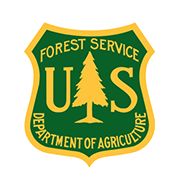Single Publication
Could not determine your location.
Mill Lake Fire Update September 4, 2022
Mill Lake Fire
Publication Type: News 09/06/2022
Contact: Public Affairs Officer – Tod McKay
Phone: 406-531-1130
What: Mill Lake Fire
Discovered: August 29th
Cause: Lightning
Location: Upper Mill Creek Canyon near Mill Lake, 12 miles west of Corvallis, MT. Stevensville Ranger District
Summary: Fire behavior and activity on the Mill Lake Fire increased yesterday afternoon due to critical fire weather. The fire grew from approximately 7 acres in size to approximately 300 acres, pushed by 15-20 mph winds. Increased fire activity was observed on both the north and east flanks and the fire made a one mile run down Mill Canyon around 5:00 pm due to the strong winds.
The fire is currently located on the north side of Mill Canyon, 2 miles east of Mill Lake and 8 miles from the Mill Creek Trailhead. Mill Creek Trail #364 is currently closed for public safety.
The Mill Lake Fire was discovered by air patrol and Willow Mountain Fire Lookout on August 29th and was caused by lightning from strong thunderstorms that moved through the Bitterroot Valley.
Fire Behavior: There was active group tree torching, short uphill runs, and spotting yesterday up to ¾ mile ahead of the main fire. Much of the growth was driven by slope and wind alignment combined with extremely dry fuels. Active fire behavior is expected again this afternoon with hot and dry conditions. Smoke and flames may be visible as temperatures warm.
Terrain: The fire is burning in very steep, rugged, and inaccessible terrain with large boulder fields, and a heavy component of dead standing timber (snags). Due to the difficult terrain and no landing locations for a helicopter, the fire is not currently staffed. The terrain and the presence of snag trees, limits the ability to safely place firefighters directly on the fire at this time.
Planned Actions: Multiple helicopters (Type 1 & 2) have been conducting water bucket drops on the fire since it was discovered last Monday. The helicopters worked until dark last night and were effective at checking and slowing the fire’s spread. Helicopters will be used again today (water drops) as needed. Firefighters are also patrolling and monitoring the fire via air and from vantage points on the ground.
Weather: Firefighters are expecting continued hot and dry conditions throughout the remainder of the weekend and into early next week.
Safety Concerns/Closures: Firefighter and public safety is always the highest priority during a wildfire. No amount of protection for a structure or resource is worth the loss of human life. No structures or infrastructure are currently threatened by the Mill Lake Fire. An emergency trail closure is in effect for Mill Creek Trail #364, west of Corvallis.
Fire Danger: Fire Danger is currently “Extreme” on the Bitterroot National Forest, the highest level possible. Stage 2 Fire Restrictions also remain in place. Visit https://www.mtfireinfo.org/ for more information on local fire restrictions.
2022 Fire Season: This summer, there have been 56 wildfires on the Bitterroot National Forest; 9 human-caused and 47 lightning fires.
###

 InciWeb
InciWeb